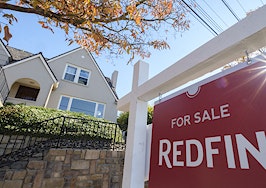A housing discrimination lawsuit filed against online brokerage Redfin could have far ranging impacts for other companies in the industry, according to a lawyer working on the case, especially as technology handles more and more of the real estate process.

Morgan Williams
Morgan Williams is the general counsel for the National Fair Housing Alliance (NFHA), one of the advocacy groups that sued Redfin last month. The crux of the case is that the housing advocates believe Redfin’s pricing policies make its services more accessible to people in predominantly white neighborhoods.
In a phone conversation with Inman, Williams called Redfin’s practices “a digital form of redlining.”
But Redfin is far from the only real estate company that selectively chooses where to operate. Other companies also selectively choose to focus their services exclusively on certain price points.
Williams did not identify other specific companies that might have discriminatory policies. But asked about the potential for the Redfin suit to impact other members of the housing industry, he said there is “the potential for that.”
“Certainly, as the marketplace becomes increasingly digital and online, and companies are able to offer their services in new ways that target the marketplace in different ways, that targeting can have a discriminatory effect,” he said.
One particular point of concern going forward could be interactions that rely on algorithms. Such technology has enable real estate companies — and firms in many other industries — to increase their efficiency. Williams said algorithm-based tech can also be used to “open up market opportunities to a broader section of communities.”
But it’s a double-edged sword. “The same biases that have long infected the market also structure the kind of data that may be utilized,” he explained. “Those same biases may impact these models and produce discriminatory outcomes.”
In other words, an algorithm can be programmed — either on purpose or accidentally — to be discriminatory. To counteract this issue, the NFHA is actually working on a tech initiative right now to combat that type of tech-driven discrimination.
Williams declined to say if the NFHA is currently investigating any other real estate companies or industry policies.
However, he did say that there is a precedent for the Redfin case specifically. In the 1990s, fair housing advocates sued insurance companies for limiting service based on minimum home values. Ultimately, those cases eventually forced changes in the insurance industry, and Williams drew a comparison between that situation and the Redfin case.
“This particular issue of housing policies that are set around limiting service on the basis of minimum home value have been fundamentally problematic in the housing market for decades,” he said. “Policies of this sort have long been deemed problematic and discriminatory.”
Williams added that “a consumer always has the option potentially to go to some other service provider but that doesn’t ameliorate the discriminatory harm.”
It remains to be seen how the Redfin case might play out, though Williams did say that his organization has heard back from agents “who have previously been concerned” about the online brokerage’s pricing policies.

Glenn Kelman | Photo credit: Redfin
Redfin itself has disagreed with the allegations in the lawsuit. The company, and in particular CEO Glenn Kelman, have been vocal advocates for fair housing. However, in a blog post after the lawsuit went public, Kelman argued that Redfin chooses where to operate based on where and how it can make enough money to pay its agents.
On the other hand, agents who recently spoke with Inman were generally unpersuaded by that argument.
Either way, though, the costs of discrimination are significant.
In addition to the impacts on individuals who face barriers getting into their preferred homes, a recent analysis from Morgan Stanley found that racial housing inequality has cost the U.S. 800,000 jobs and $400 billion in tax revenue. Racial inequality has also prevented roughly 5 million people from owning homes, the analysis revealed.













